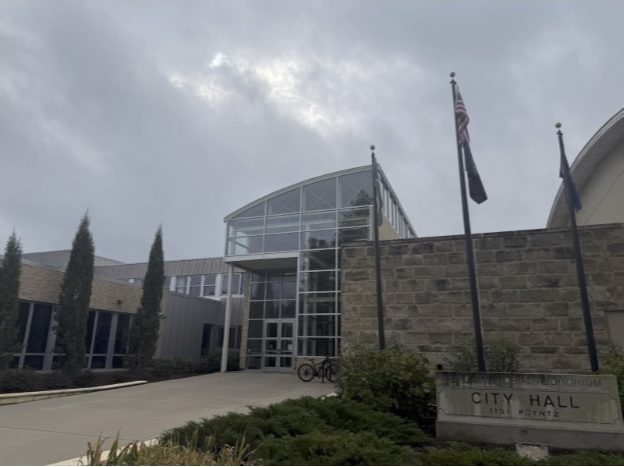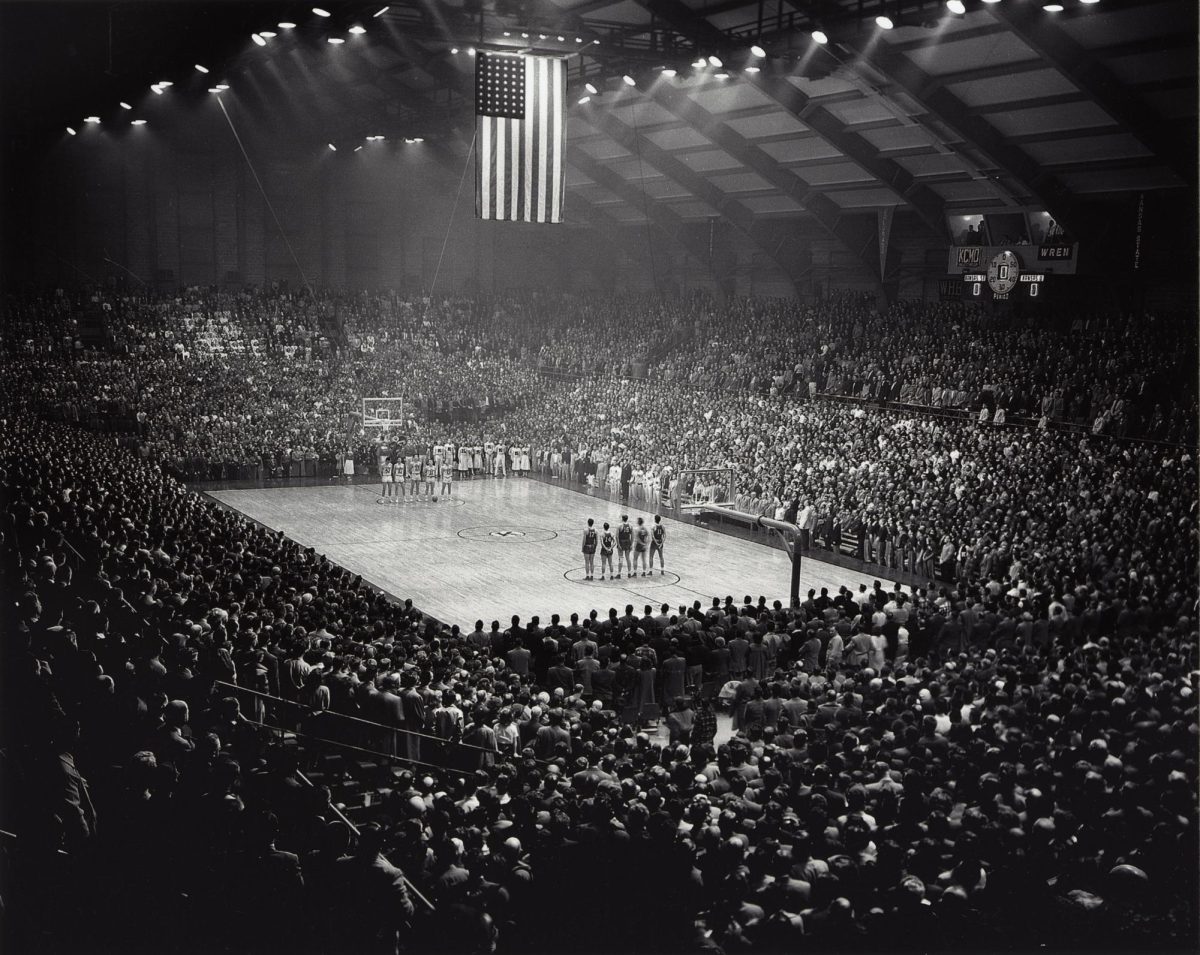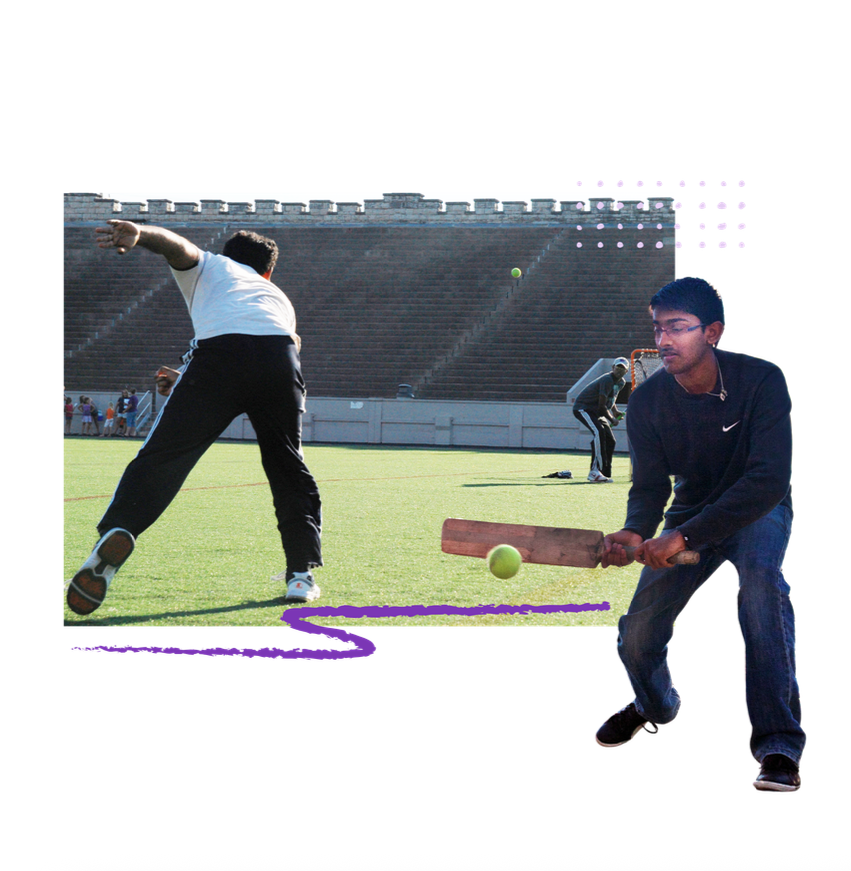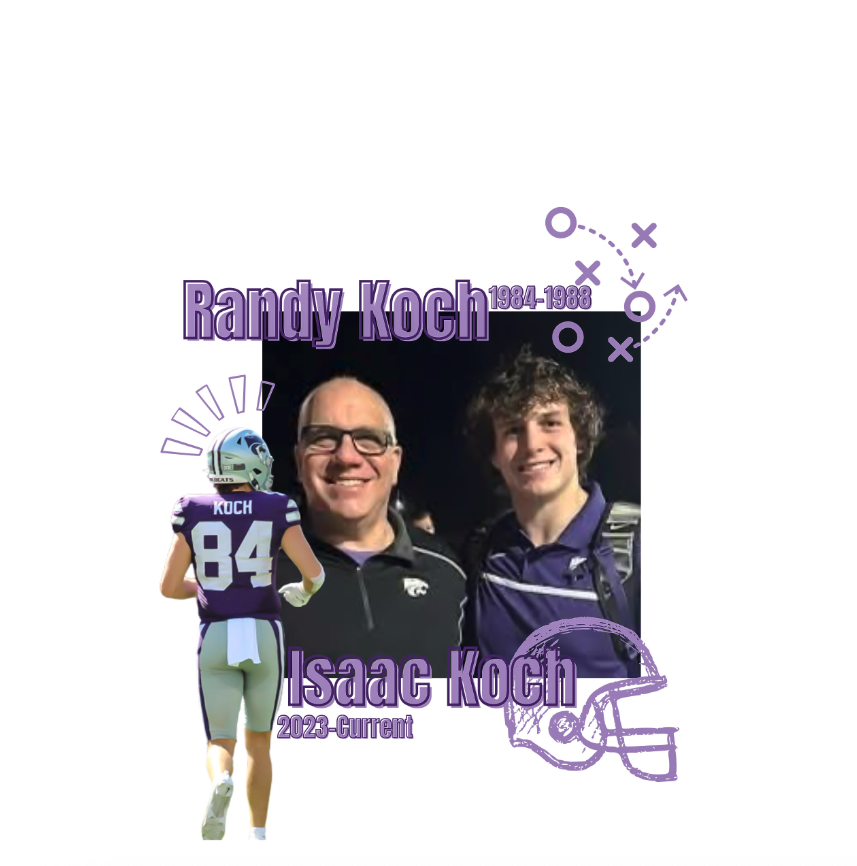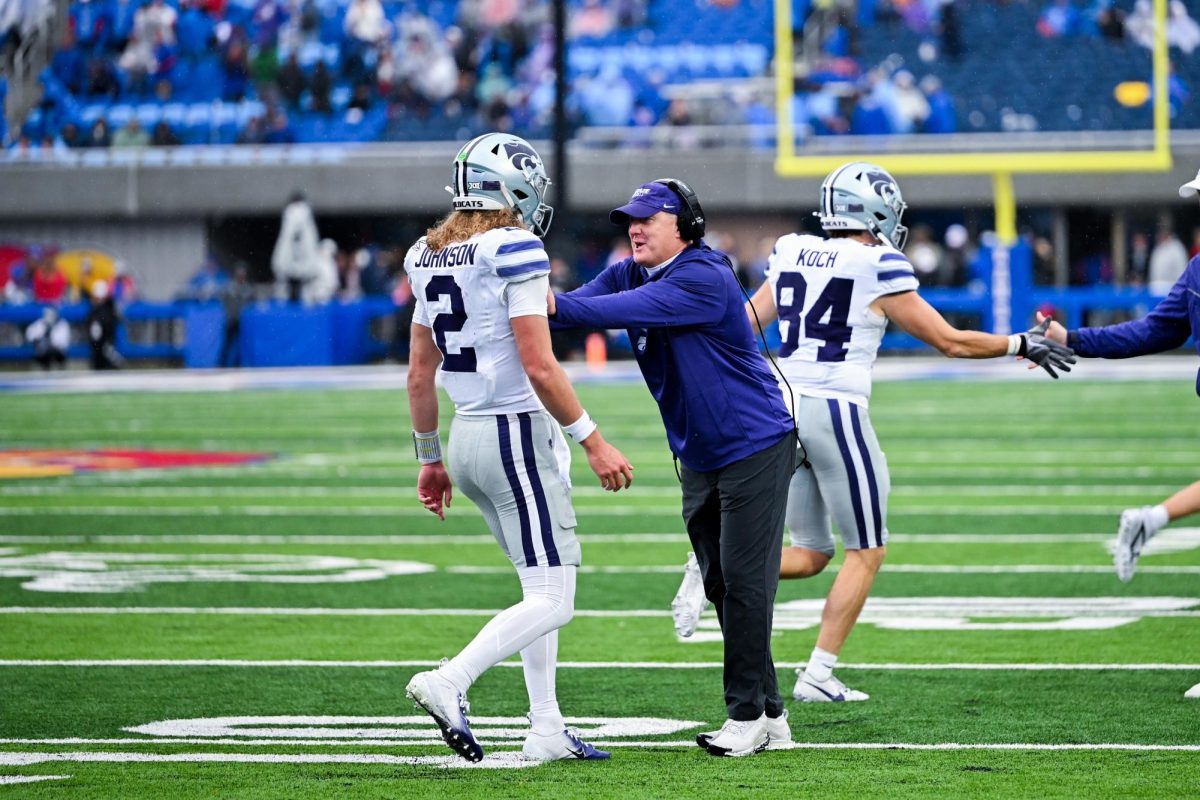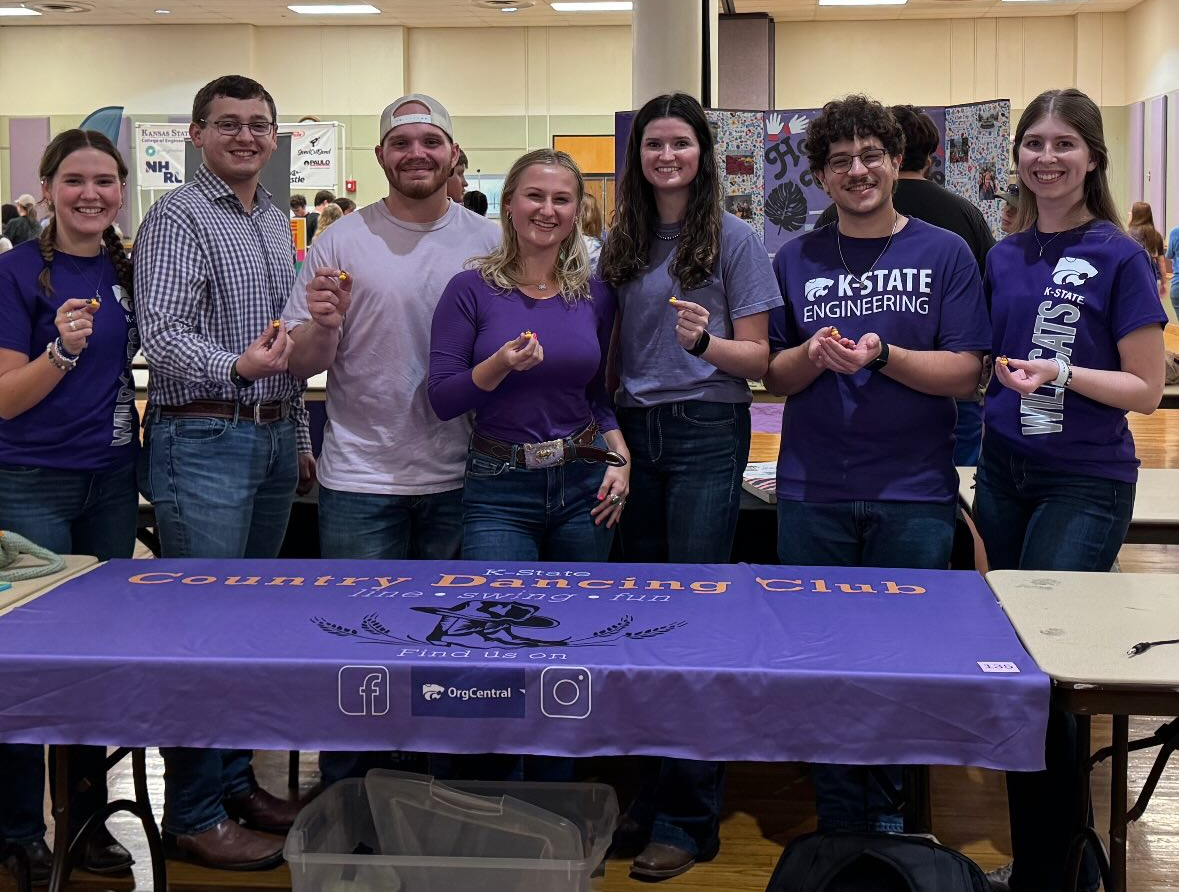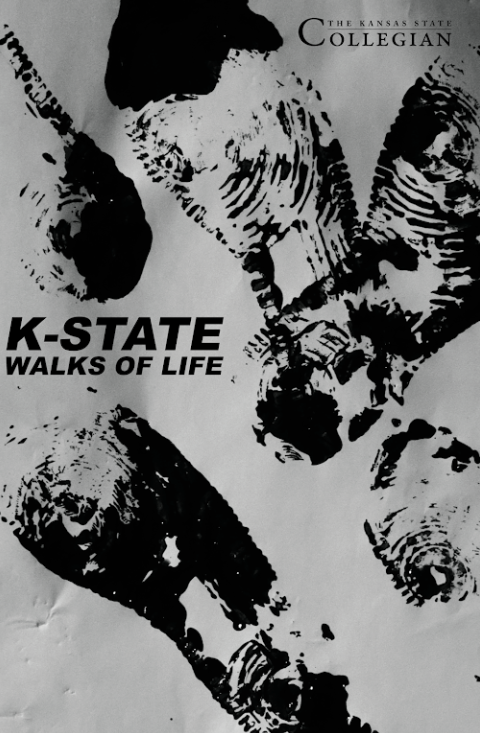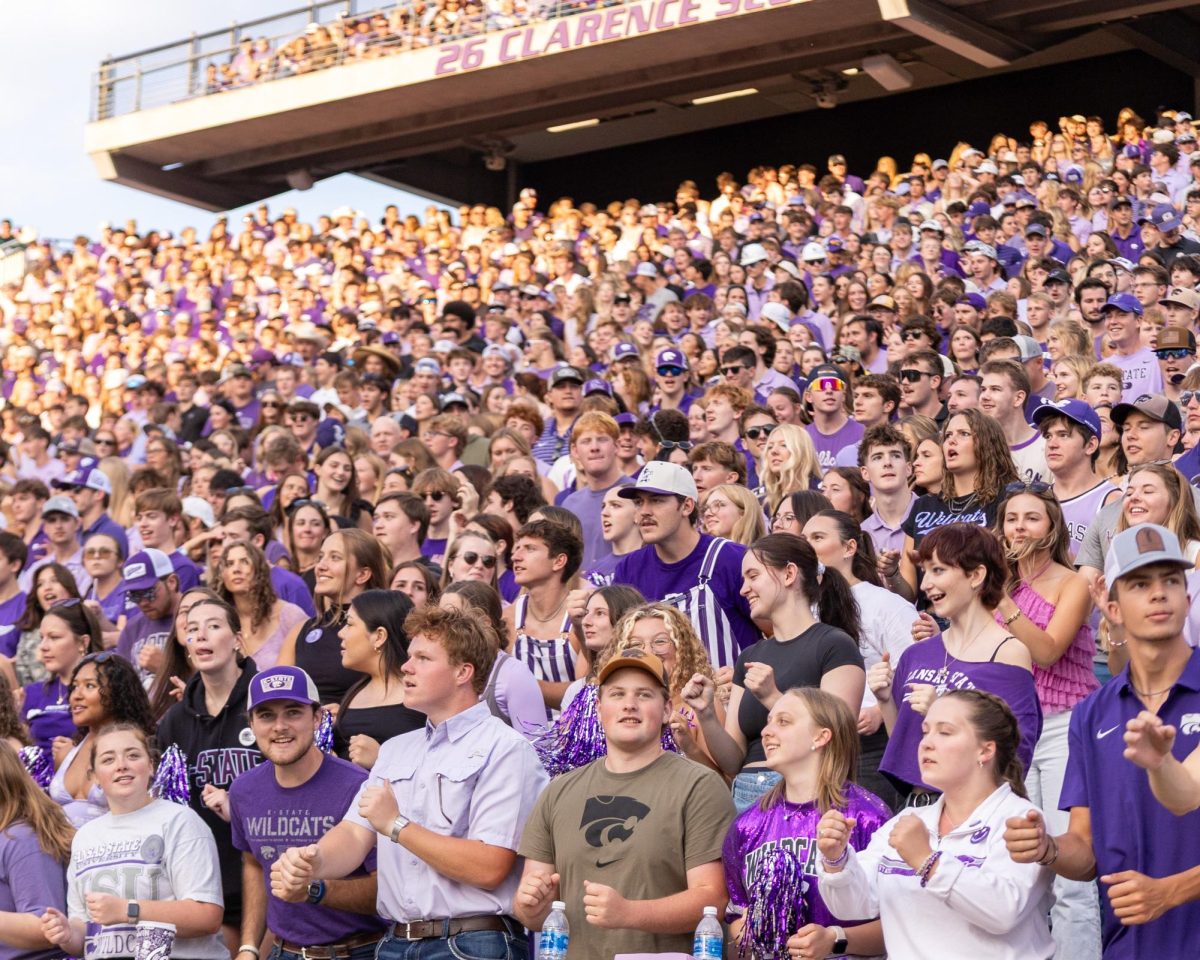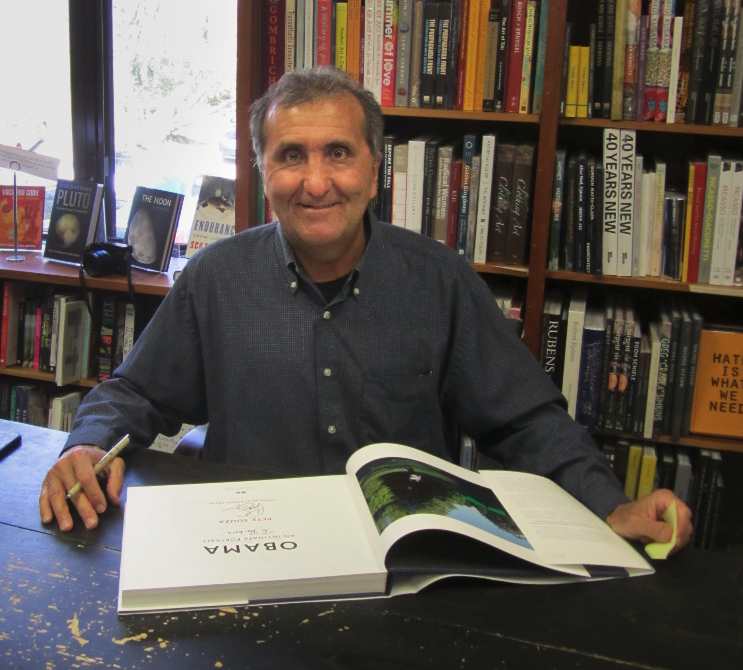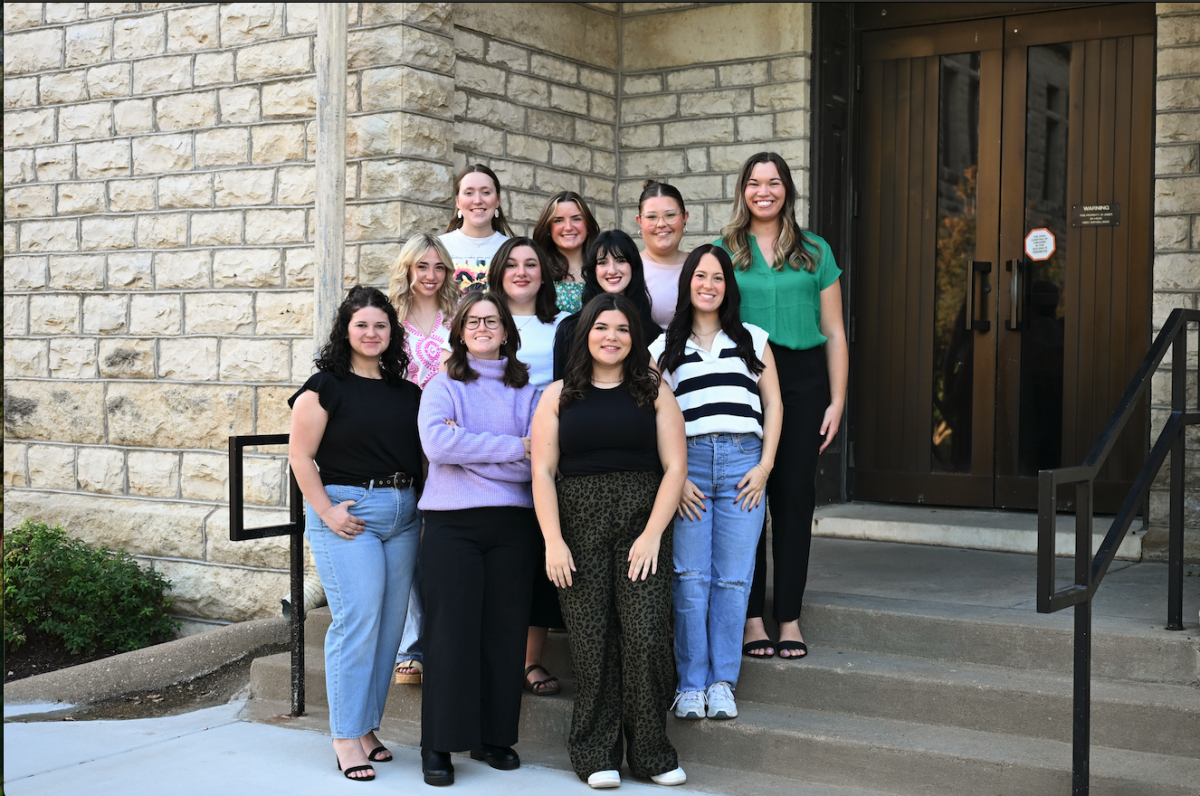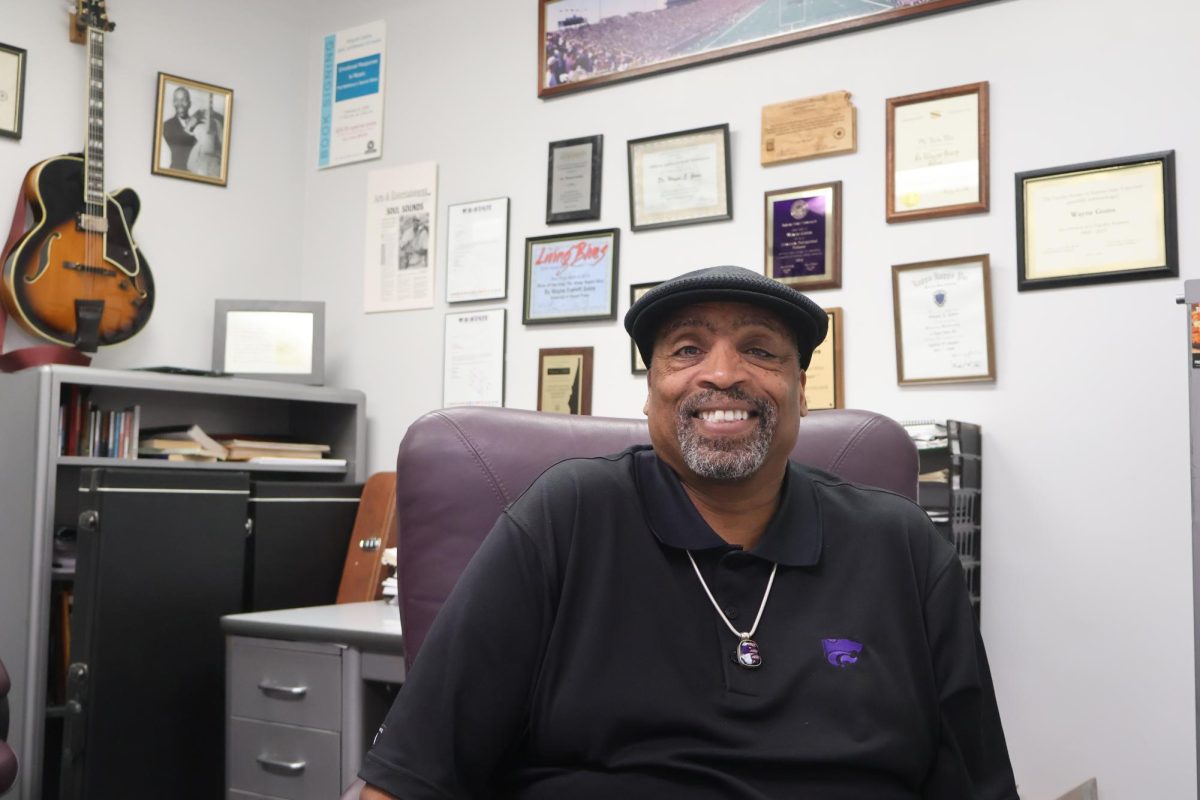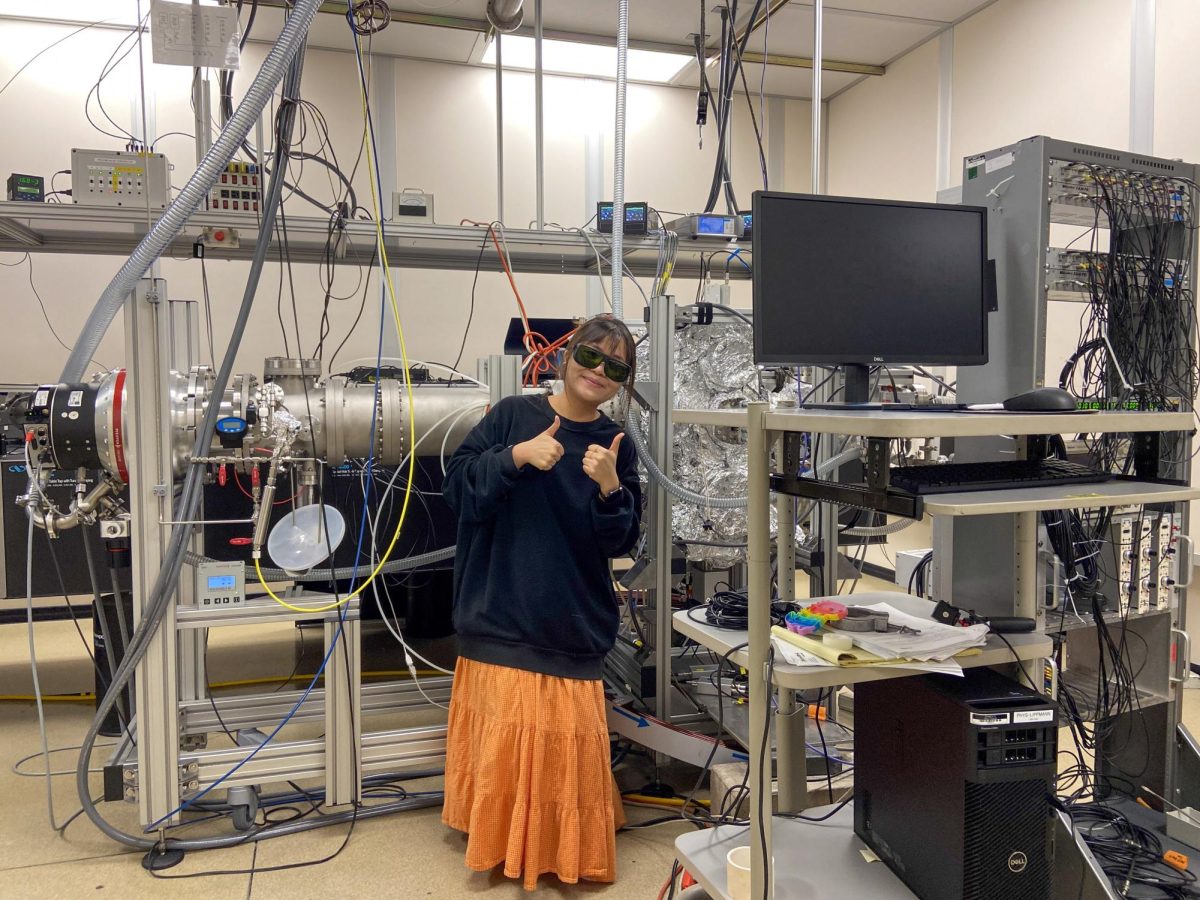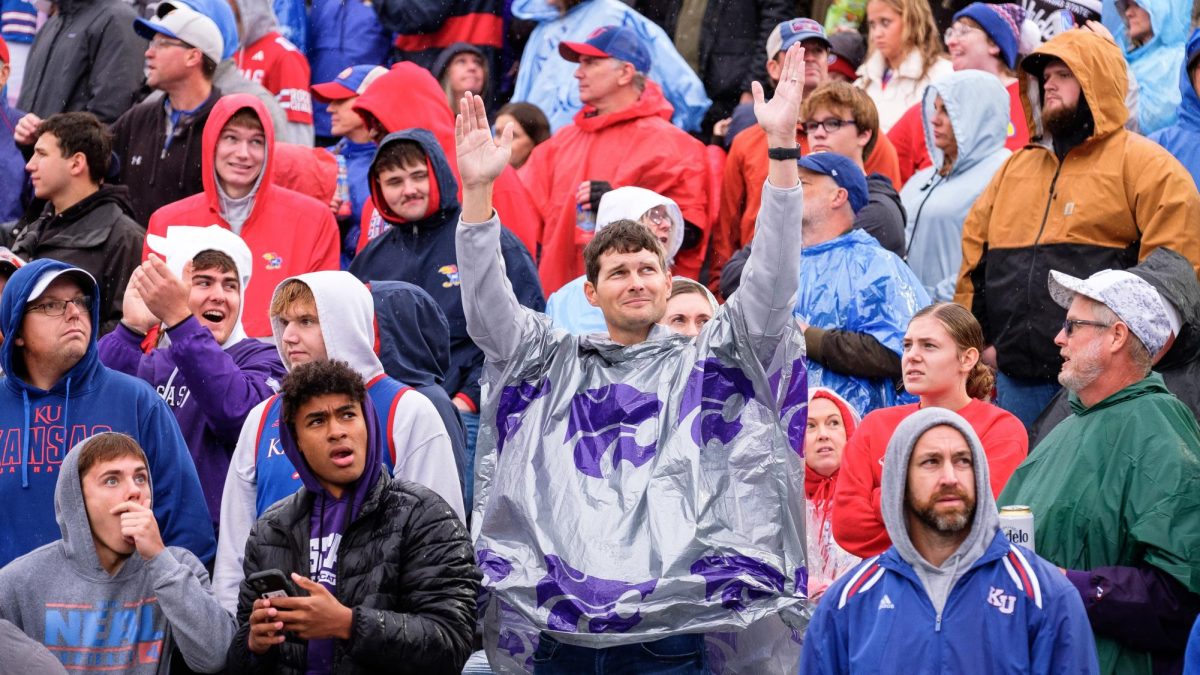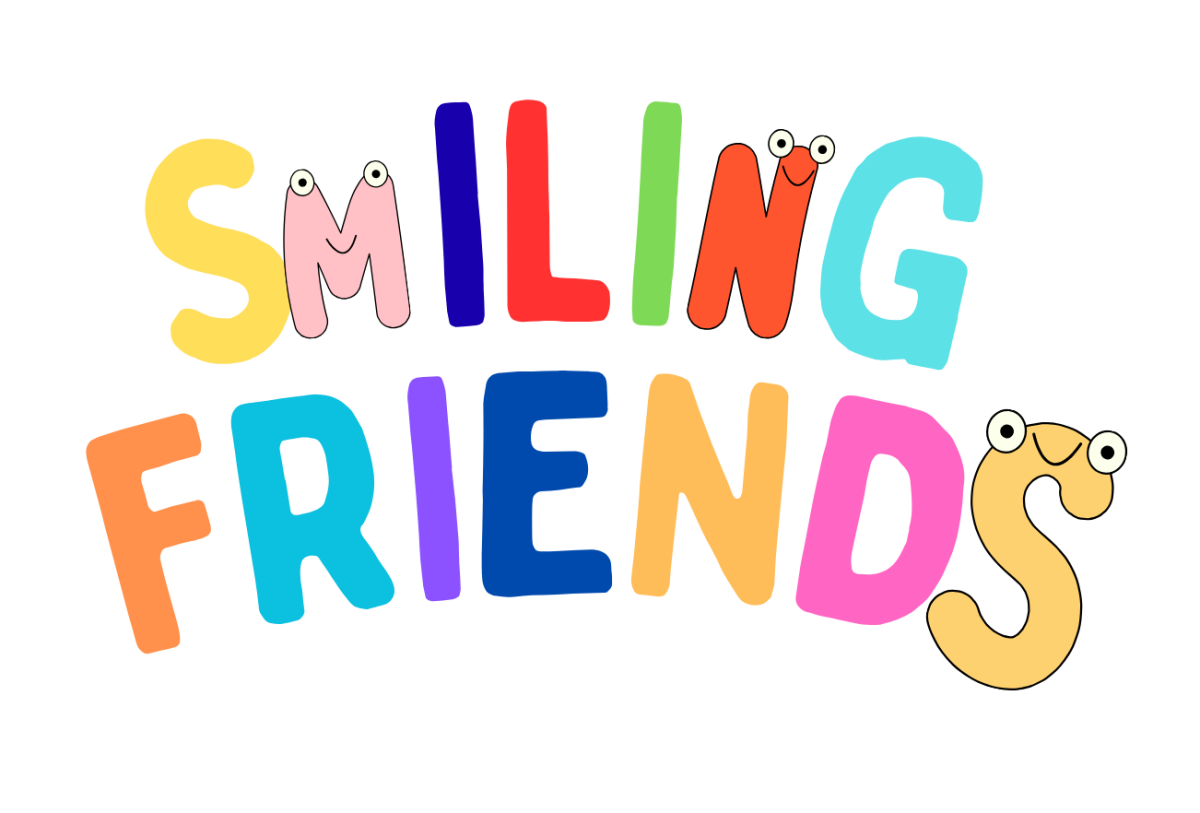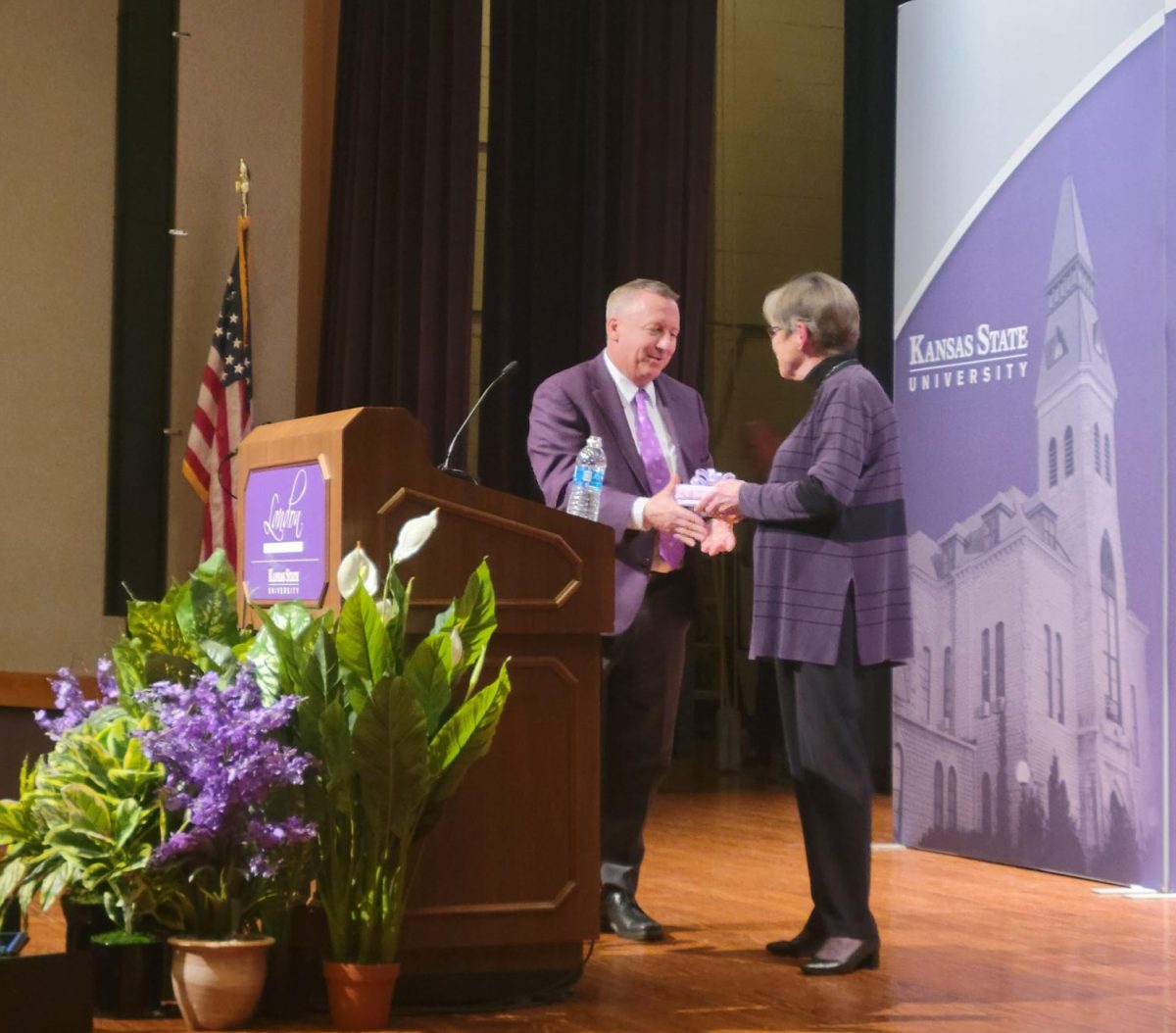Gov. Laura Kelly spoke at Kansas State’s Landon Lecture Series on Feb. 16, the 161st anniversary of K-State’s founding, about how the health of Kansas depends on healthy political discourse.
Kelly began her lecture by acknowledging the gun violence at the Kansas City Super Bowl parade the previous week.
“This senseless violence took a Kansan’s life, upwards of a dozen children were injured and countless thousands more scarred and horrified,” Kelly said. “Prevalence of gun violence has invaded our schools, our campuses, our entertainment venues, our workplaces and our homes. I look forward to the day when we can have open, honest discussions about the cause and work towards a safer society for all of us.”
Kelly said the disintegration of opposing political parties working together for bipartisan politics is concerning because finding a middle ground is essential for a healthy government.
“By a show of hands … over the past few years, how many of you have seen friendships go by the wayside because of political disagreements?” Kelly said. “How many of you have had a Thanksgiving dinner ruined by a heated argument over politics? And, honestly, how many of you feel that someone’s political views reflect whether they’re a good or a bad person? … In the past 20 years, our politics has become not just polarized but nationalized. This nationalizing of local politics carries real and serious consequences.”
Kelly said disagreements in politics are good, but the key is to find shared values within those disagreements.
“First and foremost, voters don’t hear healthy, spirited debates about the issues that their local elected officials will actually be responsible for in office,” Kelly said. “Second, when candidates aren’t taking positions on those local issues, the public is then unable to hold those officials accountable once they’re in office. And third, if campaigns become void of policy and substance, then the only thing voters can choose on is party and ideology.”
Kelly said to imagine politics like a football field, where most Americans are ideologically positioned between the 40-yard lines, maybe moving to the left or right depending on the issue. However, the elected officials that represent them usually stand between the 10-yard lines and the end zones.
“Unless you’re Will Howard, it’s very hard to get from one end zone all the way to the other,” Kelly said. “So, those politicians just stay in their own endzones. They can barely see the middle of the field, let alone get there. As a result, they refuse to even discuss — much less find solutions to — many of the key issues that really matter to Kansans.”
Kelly said social media made political discussion more complicated.
“Smartphones and social media make it so easy to create your own personal echo chamber; to surround yourself only with those who think like you do,” Kelly said. “That bubble of agreement that people have created for themselves can be comforting … but in my view, these bubbles we live in are not healthy for our system, nor our collective mental health.”
Kelly said it is important to “break out” of political bubbles.
“How do we break out of them?” Kelly said. “Well, I’ve got a three-step program for that. First, admitting you have a problem. Two, be proactive about engaging people in your life who you know live outside your bubble. My last step is a call to action of sorts. Ask those people in your life with whom you disagree about politics to join you in, say, a service project.”
Kelly said actively listening to people with different ideas is essential to create a healthier Kansas.
“Changing your mind when presented with new information and new facts doesn’t make you inconsistent,” Kelly said. “It makes you thoughtful and reasonable. We need to get back to a place where people can disagree about politics but still form a bond, still engage in community service and civic life together. My three-step bubble brick won’t fix the world’s problems, but it would be a start.”
Kelly concluded her speech with an address to the students at K-State about moving forward and prioritizing healthy political discussions, especially around controversial issues.
“New issues are arising that will confront your generation: issues about technology, America’s place in the world, about what democracy looks like here at home, and, as you’re doing here at K-State, about how to make our world a healthier place,” Kelly said. “But also, along the way, let’s ensure that cooler heads always prevail, that compromise is always a possibility, and that the middle of the road is always the road most traveled.”

